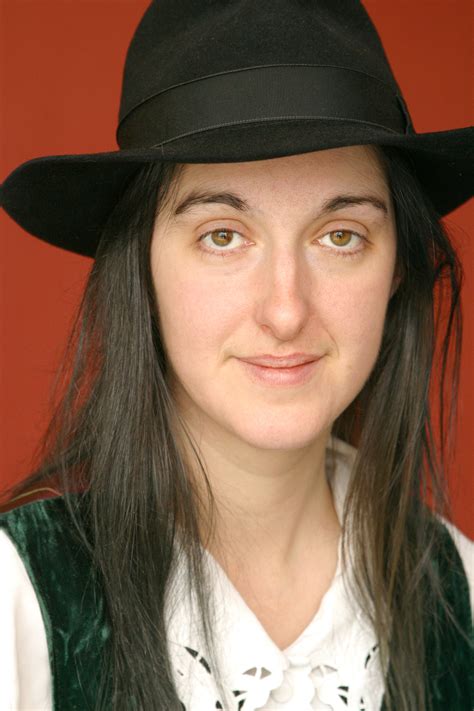A Quote by Julie Garwood
Iain didn't go back to sleep for a long while. He continued to think about all the logical reasons he would never allow himself to be turned into a lovesick weakling like Patrick, and when he finally fell asleep, he had convinced himself that he would distance his heart from his mind. He dreamed about her.
Related Quotes
She wondered whether there would ever come an hour in her life when she didn't think of him -- didn't speak to him in her head, didn't relive every moment they'd been together, didn't long for his voice and his hands and his love. She had never dreamed of what it would feel like to love someone so much; of all the things that had astonished her in her adventures, that was what astonished her the most. She thought the tenderness it left in her heart was like a bruise that would never go away, but she would cherish it forever.
Willow nestled against him. He smoothed her long hair down the back of her T-shirt, feeling its softness. In a few moments she fell asleep again, her breathing warm and regular against his chest. Alex kissed her head, his arms tightening around her. As he drifted back to sleep himself, he saw a brief flash of the thousands of angels streaming in, but right then it seemed distant, almost unimportant. The only thing that mattered was that he was lying in a bed holding Willow, their bare legs entwined. It was all he wanted to do for the rest of his life.
Strangely, what pierced his heart and mind most sharply was not the memory of her lips under his at the ball, but the way she had leaned into his neck, as if she trusted him utterly. He would have given everything he had in the world and everything he would ever have, just to lie beside her in the narrow infirmary bed and hold her while she slept. Pulling away from her had been like pulling his own skin off, but he'd had to do it.
And there you see the distinction between our feelings: had he been in my place, and I in his, though I hated him with a hatred that turned my life to gall, I never would have raised a hand against him. You may look incredulous, if you please! I never would have banished him from her society as long as she desired his. The moment her regard ceased, I would have torn his heart out and drank his blood! But, till then - if you don't believe me, you don't know me - til then, I would have died by inches before I touched a single hair on his head!
The Master gives himself up to whatever the moment brings. He knows that he is going to die, and her has nothing left to hold on to: no illusions in his mind, no resistances in his body. He doesn't think about his actions; they flow from the core of his being. He holds nothing back from life; therefore he is ready for death, as a man is ready for sleep after a good day's work.
But the actual touch of her lingered, inside his heart. That remained. In all the years of his life ahead, the long years without her, with never seeing her or hearing from her or knowing anything about her, if she was alive or happy or dead or what, that touch stayed locked within him, sealed in himself, and never went away. That one touch of her hand.
At one o’clock, the ever-logical Right-Eye Grand Steward woke up to discover that during his sleep his left-eyed counterpart had executed three of his advisors for treason, ordered the creation of a new carp pool and banned limericks. Worse still, no progress had been made in tracking down the Kleptomancer, and of the two people believed to be his accomplices, both had been released from prison and one had been appointed food taster. Right-Eye was not amused. He had known for centuries that he could trust nobody but himself. Now he was seriously starting to wonder about himself.
And if someone felt that his life had been an utter failure, and that he himself was only one among millions of wholly unimportant people who could be replaced as easily as broken windowpanes, he would go and pour out his heart to Momo. And, even as he spoke, he would come to realize by some mysterious means that he was absolutely wrong: that there was only one person like himself in the whole world, and that, consequently, he mattered to the world in his own particular way. Such was Momo's talent for listening.
The whiskey warmed his tongue and the back of his throat, but it did not change his ideas any, and suddenly, looking at himself in the mirror behind the bar, he knew that drinking was never going to do any good to him now. Whatever he had now he had, and it was from now on, and if he drank himself unconscious when he woke up it would be there.
No man, however enslaved to his appetites, or hurried by his passions, can, while he preserves his intellects unimpaired, please himself with promoting the corruption of others. He whose merit has enlarged his influence would surely wish to exert it for the benefit of mankind. Yet such will be the effect of his reputation, while he suffers himself to indulge in any favourite fault, that they who have no hope to reach his excellence will catch at his failings, and his virtues will be cited to justify the copiers of his vices.
He almost said to himself that he did not like her, before their conversation ended; he tried so hard to compensate himself for the mortified feeling, that while he looked upon her with an admiration he could not repress, she looked at him with proud indifference, taking him, he thought, for what, in his irritation, he told himself - was a great fellow, with not a grace or a refinement about him.





































